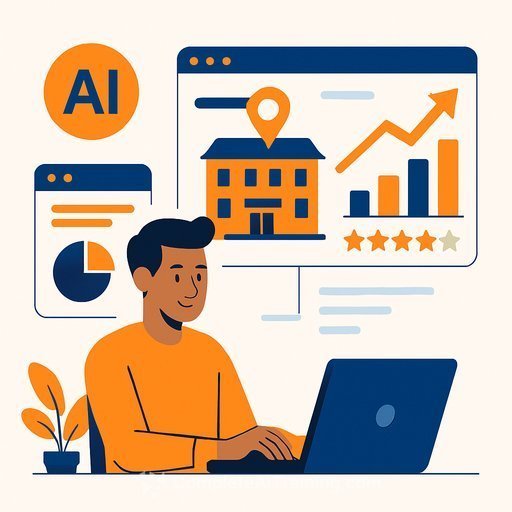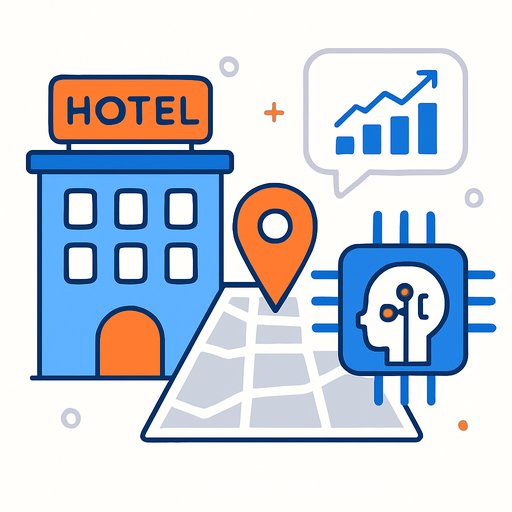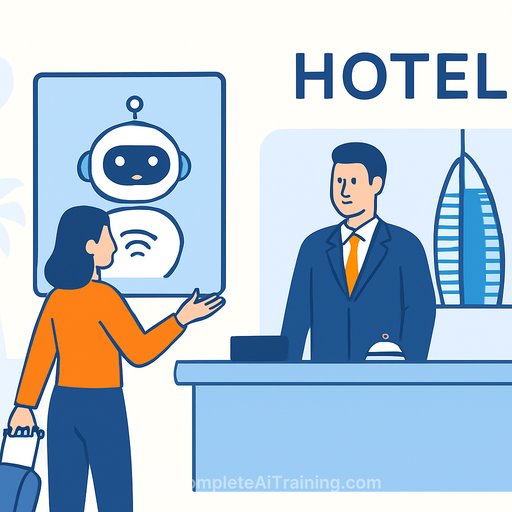The Commercial Strategy Shift: AI's Influence on Revenue, Loyalty & Demand
AI has moved from pilot tests to core systems in hotels. It now touches how guests find you, how teams respond, and how revenue grows. That shift will be front and centre at the HSMAI Middle East & Africa Commercial Strategy Conference on 25-26 November at Conrad Dubai.
This isn't about replacing staff. It's about freeing them to do what humans do best: listen, advise, and build trust.
Personalisation that feels human (at scale)
Across the board, leaders agree: AI's edge is pattern recognition and speed. It flags intent, predicts needs, and clears routine tasks so teams can lean into high-value moments.
Sam Weston (80 DAYS) notes that AI can surface preferences that make experiences feel more natural. Michael Marchand (Canary Technologies) points to time saved by automating low-complexity requests. Paul Rantilla (Plusgrade) highlights better offers based on what each guest values. Anurag Jain (RateGain) says automation handles the what and when, so staff can focus on the why. Evgenii Pavlov (Yango Ads) aims to remove digital friction so service feels effortless.
- Unify guest data from PMS, CRM, and messaging into a single view.
- Trigger pre-arrival outreach with 3-5 relevant add-ons based on trip context, not guesswork.
- Use dynamic content on the website and in email/SMS based on behavior, dates, and party type.
- Give staff a "co-pilot" that summarises guest history and suggests next best actions in real time.
AI-first search: from keywords to conversation
Trip planning is moving from simple queries to dialogue. Guests ask for "a quiet business hotel with late checkout near DIFC" and expect options that fit, not a long list to sift through.
Marchand sees half of travellers using AI to plan trips. Weston adds it's no longer about just being listed, but being understood and recommended. Rantilla expects full-stay curation, not just room matches. RateGain points to a single, fluid conversation from discovery to booking. Pavlov expects agentic systems to plan logistics end-to-end.
- Make your content unambiguous: clear copy, current amenities, strong photography, and fast load times.
- Add structured data (Hotel schema) so AI systems can parse your site with confidence. See Google's guide.
- Publish an FAQ that mirrors how guests actually ask questions in chat and voice.
- Deploy site chat that can answer with live rates, availability, and policies-and hand off to staff fast.
- Keep Google Business Profile, rates, and inventory consistent across channels to avoid confusion.
Turning AI into a true partner inside the business
Success isn't a tool purchase-it's a change in how commercial teams work. Start small, tie each use case to measurable outcomes, and build internal champions who can teach others.
- Pick 2-3 outcomes: higher direct bookings, higher ancillary take rate, faster response times.
- Form a cross-functional pod (sales, marketing, revenue, ops) to align data, messaging, and offers.
- Create prompt and playbook libraries for common tasks (upsell scripts, OTA parity checks, reply templates).
- Set guardrails for data privacy, approvals, and brand voice. Track lift with A/B tests, not opinions.
Loyalty is shifting from points to relevance
With AI influencing how travellers choose, brand affinity depends less on name recognition and more on clarity. Can the system "understand" your promise and trust your data enough to recommend you?
RateGain expects loyalty to reward relevance over repetition. Pavlov suggests programmes should serve both human guests and the AI agents that increasingly influence bookings.
- Shift rewards toward intent and context: late checkout for early flights, workspace credits for weekday stays.
- Offer micro-benefits in the moment: instant room move after a complaint, on-property credits during low demand.
- Map how AI systems interpret your brand: consistent claims, proof points, and guest outcomes across channels.
Revenue lift and efficiency-at the same time
Generative tools now place properties on curated shortlists, creating fresh routes to direct traffic. Upsell flows can run automatically, and predictive systems can spot patterns humans miss.
RateGain's view: connect marketing, pricing, and distribution data so offers, timing, and channels work as one. Yango Ads calls this "efficiency with empathy"-faster operations, without losing the human feel.
- Automate pre-arrival upsells tied to length of stay, season, and segment-then optimise weekly.
- Use look-alike and intent signals to personalise packages on the website and in email/SMS.
- Feed pricing and availability into chat and call scripts so teams can quote and convert on the spot.
- Track unit economics by segment: CAC, conversion, ancillary take rate, and net RevPAR.
A 7-day sprint to prove value
- Day 1-2: Audit website clarity, FAQs, and Hotel schema. Fix obvious gaps and stale content.
- Day 3: Launch a pre-arrival offer set (3-5 options) tied to two high-value segments.
- Day 4: Add AI chat to answer top 25 queries and route complex issues to staff.
- Day 5: Build a frontline "cheat sheet" that summarises guest history and suggests next steps.
- Day 6-7: A/B test copy and offers. Report lift in direct conversion, response time, and ancillary revenue.
Heading into CSC MEA
As leaders gather at CSC MEA in Dubai, the throughline is clear: AI is now a core lever of commercial strategy. The hotels that win will pair smart systems with sharper human service-clear promises, fast answers, and offers that feel spot-on.
If you want a broader industry view, this overview is helpful: AI and travel, by McKinsey.
For teams in Hospitality and Events looking to upskill quickly, here's a curated path of practical courses: Complete AI Training - courses by job.
Bottom line: Make your brand easy for both people and machines to understand. Let automation handle the busywork. Put your team where it counts-conversations, recovery, and moments guests remember.
Your membership also unlocks:






